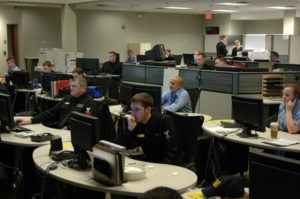Can you trust Wikileaks?

During the last U.S. presidential election campaign Wikileaks drew extensive news coverage, as it released data from the Democratic National Committee shortly before the election took place. In March Wikileaks released a massive amount of data regarding CIA’s espionage capabilities. But how does Wikileaks fact-check its data? Can you trust that what it posts is real and not a hoax? If you’ve ever wondered about this, then you might want to listen the BBC World Service podcast, the Inquiry, which has an episode titled “Can you believe what you read on Wikileaks?” You can also find the episode on Stitcher here. What’s fascinating about this podcast is that the journalist interviewed disillusioned members of Wikileaks itself. The bottom line is that the data released to date has been very reliable. At the same time, Assange has nearly total control over what is released, and so his agenda determines Wikileak’s decisions.
There has recently been a great deal of discussion regarding whether Wikileaks has released information obtained from the Russian state. Assange has denied this. Still, it’s also perfectly possible that the Russian state may be running a false-flag operation -an idea as old as espionage itself- in order to pass on information to Wikileaks. More important, however, is the fact that Wikileaks is very much defined by the decisions of a single individual. The podcast discusses Assange’s history, motivations and relationships, to try put Wikileaks into context as a political actor.
Shawn Smallman

